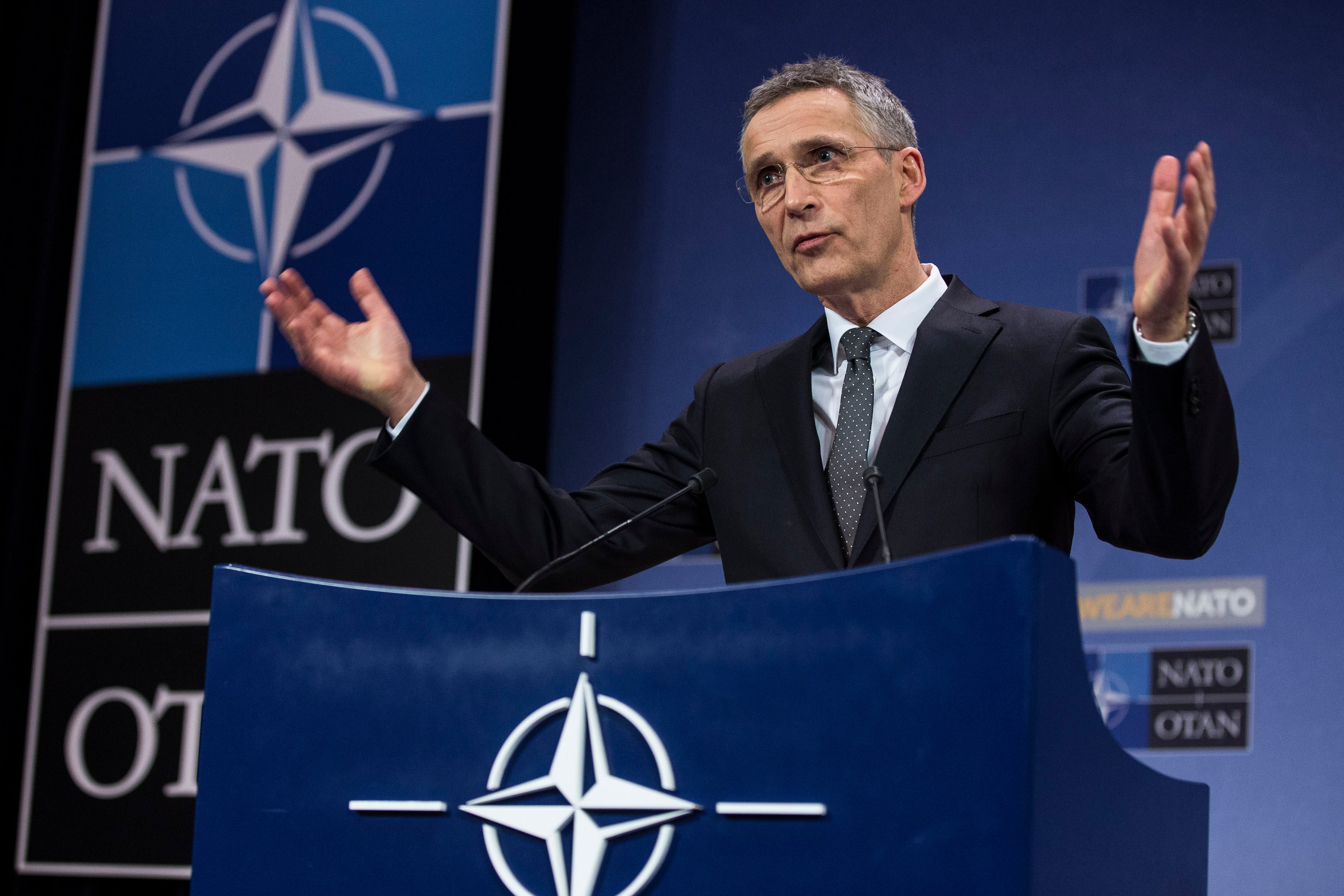Nato: the western alliance which protects the security of Europe
The North Atlantic Treaty Organisation was founded in the aftermath of the Second World War.

Your support helps us to tell the story
From reproductive rights to climate change to Big Tech, The Independent is on the ground when the story is developing. Whether it's investigating the financials of Elon Musk's pro-Trump PAC or producing our latest documentary, 'The A Word', which shines a light on the American women fighting for reproductive rights, we know how important it is to parse out the facts from the messaging.
At such a critical moment in US history, we need reporters on the ground. Your donation allows us to keep sending journalists to speak to both sides of the story.
The Independent is trusted by Americans across the entire political spectrum. And unlike many other quality news outlets, we choose not to lock Americans out of our reporting and analysis with paywalls. We believe quality journalism should be available to everyone, paid for by those who can afford it.
Your support makes all the difference.The Russian missile strike on a Ukrainian military base close to the border with Poland has raised new fears that Nato could be drawn into the conflict.
– What is Nato?
The North Atlantic Treaty Organisation is a military alliance founded in the aftermath of the Second World War primarily to counter the threat posed by the Soviet Union.
It initially comprised 10 European states – including the UK – plus the United States and Canada and was intended to bind the US to the defence of Europe.
In 1955, West Germany was permitted to join, prompting the Soviet Union to form the rival Warsaw Pact marking the two sides in the Cold War.
– What is Nato’s purpose?
Under Article 5 of the founding North Atlantic Treaty – signed in April 1949 – an attack on one member state is treated as an attack on all and requires other members to come to their assistance.
Since the 2014 Wales summit, alliance members have been formally committed to spending at least 2% of national income on defence.
– What happened to Nato after the Cold War?
Following the fall of the Berlin Wall in 1989 and the subsequent break-up of the Soviet Union in 1991, Nato agreed significant military reductions while seeking better relations with the former communist states of central and eastern Europe.
In 1999, Poland, Hungary and the Czech Republic became the first former Soviet bloc countries to be admitted as Nato members. It has since expanded further and now has 30 members.
The move has led to tensions with Russia which believed it contravened assurances given to president Mikhail Gorbachev that there would be no eastward expansion of the alliance.
– Has Article 5 ever been invoked?
Just once, after the 9/11 terror attacks on the Twin Towers in New York and the Pentagon in Washington in 2001.
It saw troops deployed to Afghanistan under the Nato-led International Security Assistance Assistance Force (Isaf).
Prior to that, Nato was involved in the conflicts in Bosnia and Kosovo following the break-up of the former Yugoslavia and in 2011 it enforced a no-fly zone over Libya.
– What is President Vladimir Putin’s view of Nato?
Nato insists it is a purely defensive alliance and does not represent a threat to Russia or to anyone else.
However President Putin has long chafed at its expansion into areas which Russia has traditionally regarded as falling within it sphere of influence.
He has pushed for the draw back of forces from eastern Europe and has been particularly exercised at the prospect that Ukraine could eventually be admitted.